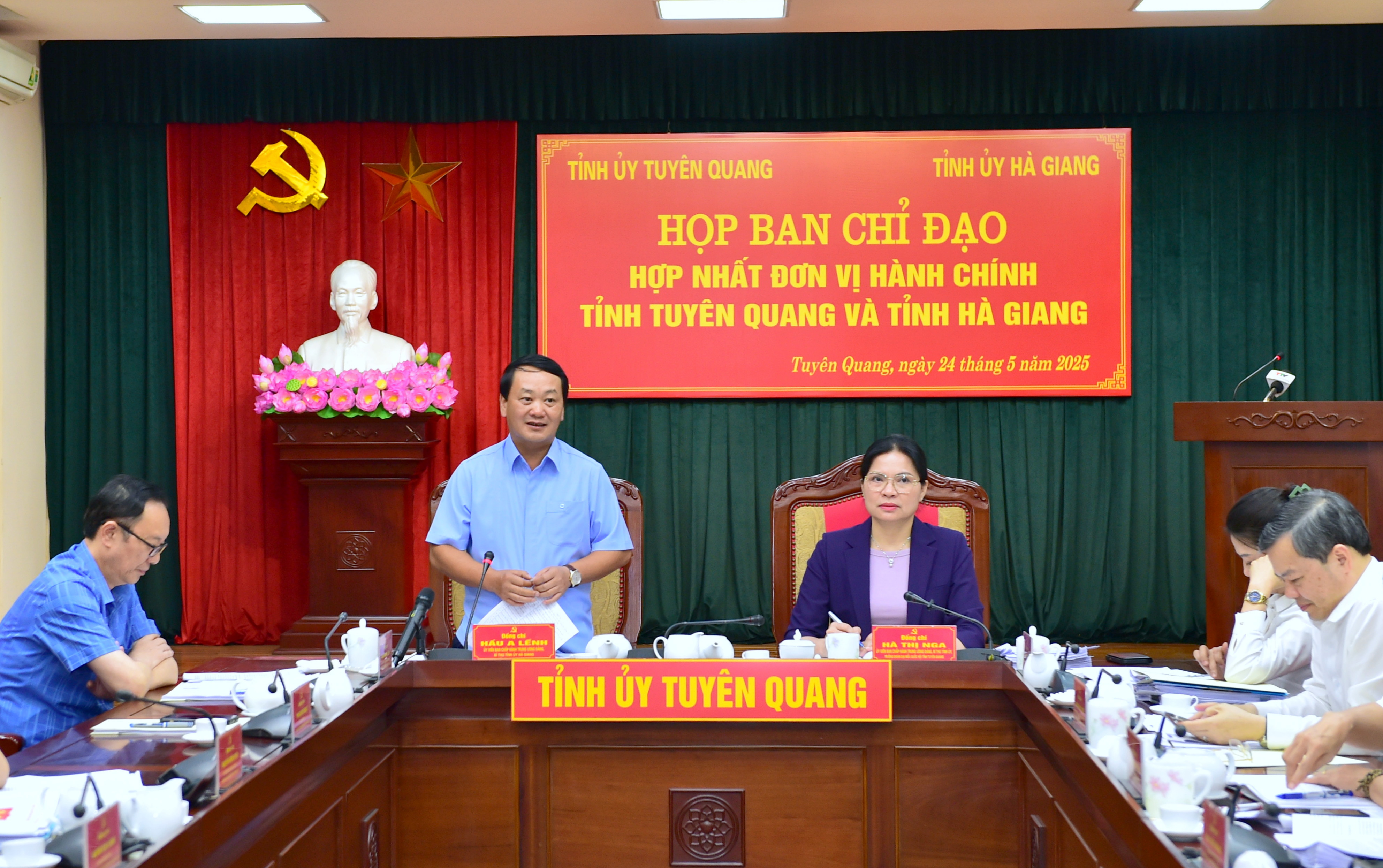
Comrade Ha Thi Nga, Secretary of the Tuyen Quang Provincial Party Committee, and Comrade Hau A Lenh, Secretary of the Ha Giang Provincial Party Committee, co-chaired the meeting on the proposed provincial merger plans.
Under Resolution No. 202/2025/QH15 passed by the National Assembly on June 12, 2025, the merger is aligned with the national policy of reorganizing administrative units to improve governance efficiency and regional connectivity. Despite their rich potential, both provinces have long struggled with limited population size, fragmented investment, underdeveloped infrastructure, and challenges in attracting strategic investors.
The merger seeks to overcome these limitations by integrating complementary advantages: Ha Giang’s strategic location on the northern border with strengths in cross-border trade, tourism, and natural resources; and Tuyen Quang’s central position with historical heritage, rich forest resources, and a developed transport network. Together, the new province can form a vital interregional economic corridor linking border trade with key economic centers like Hanoi and Vinh Phuc.
The combined natural assets, such as the UNESCO Dong Van Karst Plateau, ancient forests, medicinal herbs, and ecological lakes - position the province for green economic development, especially in eco-tourism, herbal medicine, clean agriculture, and sustainable forestry. Culturally, the region boasts over 40 traditional festivals and hundreds of historical sites, enabling year-round, diversified tourism offerings.
Infrastructure projects like the Tuyen Quang - Ha Giang expressway are being accelerated to strengthen logistics and economic integration, while urban and industrial clusters are expected to emerge along key routes.
Institutionally, the merger merges Tuyen Quang’s proven administrative reform record with Ha Giang’s deep local knowledge of borderland governance, creating a leaner and more responsive governance model. Business leaders and policymakers view this as an opportunity to attract high-quality investment through streamlined policies, land-use flexibility, and support for startups and clean industries.
Provincial leaders emphasize the need to move beyond basic administrative consolidation toward a strategic reorganization of development space. They call for harmonized investment planning that ensures inclusive growth, especially in ethnic minority and border areas.
In essence, the merger of Tuyen Quang and Ha Giang is a bold and forward-thinking decision, rooted in both political vision and developmental necessity. If leveraged effectively, it could transform the newly formed province into a dynamic growth engine for the northern mountainous region, balancing economic ambition with cultural preservation and inclusive sustainability.

Comment
Print